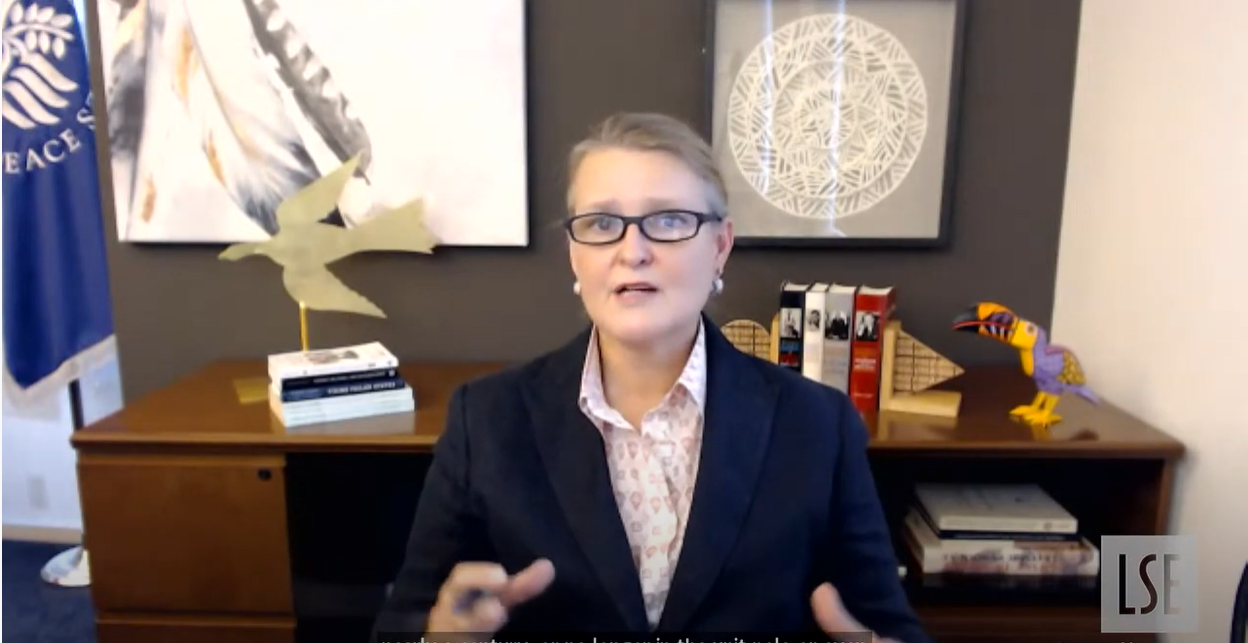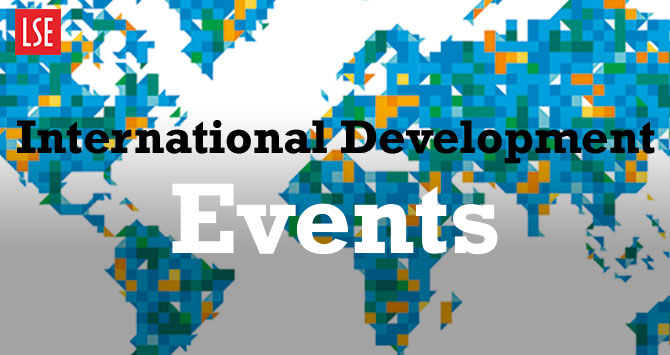On Friday 9 February, Arkebe Oquaby and Richard Kozul-Wright joined us for a discussion on ‘Industrial Policy Challenges in the Developing World’ as part of the Cutting Edge Issues in Development Lecture Series for 2023/24. Chaired by Dr Laura Mann. Read what MSc student Francisca Stuardo Vidal took away from the lecture below.
You can watch the lecture back on YouTube or listen to the podcast.
Old habits and new strategies to navigate industrialisation in a changing world
Industrialisation has a long history. From the early days of the XVIII century, when manufacturing was at the centre of the discussion, to the challenges posed by global supply chains. The academic in development studies and policymaker for the Ethiopian State, Arkebe Oquaby, discussed with the Director of the Globalisation and Development Strategies Division at the United Nations Conference on Trade and Development (UNCTAD), Richard Kozul-Wright, the implications of industrialisation in the economy.
Arkebe summarised the different stages in which industrialisation has unfolded. He referred first to the strong state-led policy on spark industrialisation, using manufacturing to create wealth and drive growth. However, he explained that industrialisation has shifted towards technology as an asset to increase industrialisation responding to the second half of the XX and XXI century global context of interconnectedness and volatility. This stage is marked by increasing pressures to phase out fossil fuels, boosting a green economy with new regions, such as Asian countries, challenging the traditional power dynamics from Western countries in the global north.
Industrialisation matters
Kozul-Right focused on the underlying principles of boosting economies and guaranteeing sustainable growth. He explained that manufacturing has a pivoting role because of its links to the job market or the potential use of revenues collected by taxation. Manufacturing can encapsulate many leavers needed to transform the economy into a virtuous growth cycle with productivity at the centre. Kozul-Right also analysed the areas of productivity across countries, ranging from commodities to tech and services provision. Regardless of the sector, investing in the industrial capacity remains relevant when considering industrialisation, particularly the asymmetries and interdependency of globalisation.
Kozul-Right analysed how the production of profit and power can be boosted by industrial policies to increase competition and correct market failures. Nonetheless, he stressed that “many countries have suffered from the gap between the process and the result”, adding that clear targets, state coordination, and a focus on the outcomes can be helpful components to factor in policymaking. The state’s role in development seems unavoidable when addressing the political debate beyond economic trends.
Developing countries in the spotlight of global industrialisation
While Europe and the US have taken austerity as the road, professor Oquaby highlighted the role of China, India, and other Asian countries as powerful players with expanding economies. Oquaby stated, “We need to understand the importance of Asia as a driver of the economy and diversify collaborations.” Adding, “We are entering an area where a great transformation will change the direction of economies.”
Kozul-Right, on his side, highlighted the need for the representation of these new actors in the international scene, particularly in financial institutions and intergovernmental bodies, to rebalance multilateralism. “The framing of the global governance is a lack of representation of developing countries, not only in voting powers but also in the heads of these institutions”, he concluded. Kozul-Right pointed out the lack of presence of China in bodies such as the World Bank, the IMF, despite being one of the most industrialised and growing economies and growing economies.
Africa is also a continent where growth can take different paths, considering, for instance, new means for agriculture and the growing prominence of raw minerals for energetic transition. Professor Oquaby referred to the incoming trends in African industrialisation, highlighting the diversity across the region and pondering the variables embedded in countries’ macroeconomics, such as their industrial capacity, industrial ecosystem and technological capacity. Looking at its future, he focused on the potential new wave of development that the increasing need for raw materials might bring to the region, given its concentration of lithium, cobalt, and aluminium, among others. He explained that “talking only about resources is repeating the cycle. If no policy ensures extractive industries can be properly managed as national resources and the legislative process is not right, the new agenda will only feed corruption. We need to talk about policy and a development state.”.
Richard Kozul-Right referenced “green colonialism”, a system in which Africa provides the raw, critical materials for the green energy transition whilst importing highly costly manufacturing goods. He focused on the change in the mindsets of African representatives, such as the African Bank officials, who are now more conscious of the need for regulations and innovation to set higher standards for industrialisation with added value. more conscious of the need for regulations and innovation to set higher standards for industrialisation with added value.
Lastly, Latin America was mentioned as a rising player if its countries could sort out their debt and return to industrialisation. Kozul-Right drew attention to their need to escape from the middle-income trap, reset industrialisation, and navigate the integration and creation of technologies to avoid the burden of the past. Although academic debates have underestimated industrialisation in the past, Kozul-Right is a firm believer in its value in developing economies, and the challenge is how to get countries back in the industrialisation game. In his remarks, professor Oquaby concluded: “Developing economies have a bright future if they embrace the new industries.”
Manufacturing the future in the south
From the panel, both specialists agreed on how the global south is challenging the existing rules in industrial policy. Either by elevating growth, such as in the case of Asia, or offering critical materials for a green future, as in the case of Africa, the continents have a say that needs to be considered in the decision-making, both internally and at the international level. In the domestic discussion, manufacturing can be a powerful strategy if technology is associated. Southern Asian countries such as Singapore have proved that technology can build new poles depending on the capacity of the industry to boost innovation. Another example exposed during the session was the case of Indonesia, which banned the export of raw minerals so that they could build capacity to add value to the minerals extracted from their land.
The main challenge for these “raising economies” Is that opportunity can come with a high stake if governance is not in place. If policymakers do not think the state -its size and prerogatives and the principles guiding their action- all these opportunities can be easily wasted. Governments, particularly in Africa and Latin America, need stronger states with more intention to boost productivity without choking the private sector and creating new incentives to take a role in these new trends. This is particularly challenging in unequal societies, where wealth is concentrated, and elites are often conservative and cautious, whilst people interested in setting up new businesses might be willing to take the risk but lack the resources.
On the other hand, the international setting, led by the US and Europe in the financial institutions, must now consider Global South players’ requests, increasingly powerful and willing to challenge the existing order. An example is the African delegation that pushed for a UN tax convention, despite the opposition from sectors in the Global North.
If the future is aimed to be green, more just and less dependent on colonial powers, then industrial policies have a promising but challenging space ahead.
The views expressed in this post are those of the author and in no way reflect those of the International Development LSE blog or the London School of Economics and Political Science.




